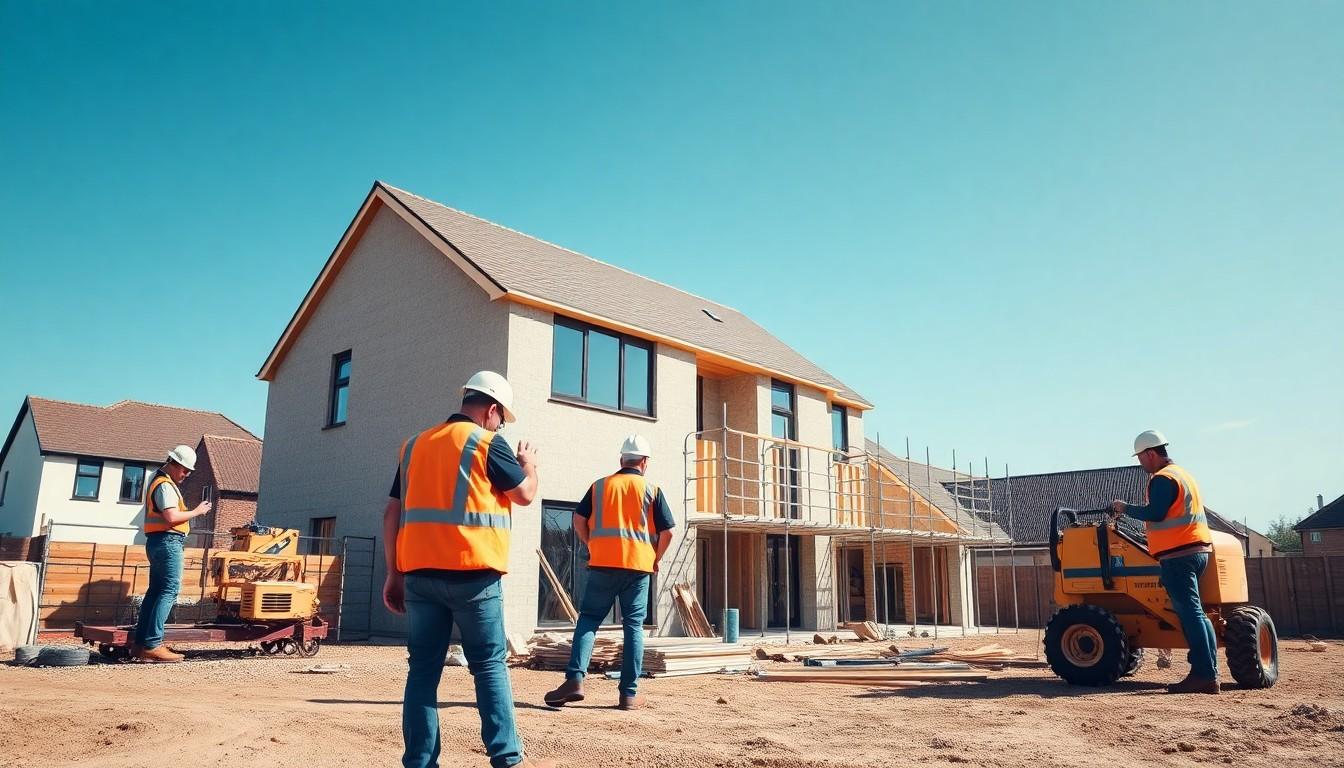Category: Residential building contractors
How to Choose the Best Residential Building Contractors: A Complete UK Guide

Building your dream home or renovating your existing space can feel overwhelming. That’s where residential building contractors step in – they’re the skilled professionals who’ll transform your vision into reality whilst managing all aspects of construction from start to finish.
These experienced contractors bring invaluable expertise to your project handling everything from obtaining permits and coordinating subcontractors to ensuring compliance with local building codes. They’ll work closely with you to understand your needs budget and timeline whilst delivering high-quality craftsmanship that meets industry standards. Whether you’re planning a small renovation or building a custom home from the ground up choosing the right residential contractor is crucial for your project’s success.
Key Takeaways
- Residential building contractors manage all aspects of home construction and renovation projects, from obtaining permits to coordinating subcontractors and ensuring regulatory compliance
- There are different types of contractors, including general contractors who handle complete projects and specialised contractors who focus on specific areas like luxury homes or student accommodation
- When choosing a contractor, look for key qualifications such as FMB membership, CSCS cards, and TrustMark accreditation, along with at least 5 years of experience and verifiable references
- Comprehensive building contracts should include detailed project scope, payment terms, insurance requirements, and dispute resolution procedures, typically with materials comprising 40-50% of total costs
- Successful project management requires thorough pre-project planning, including property assessment, systems inspection, and detailed timeline development
What Are Residential Building Contractors
Residential building contractors specialise in constructing new homes, overseeing renovations and executing property improvements for residential buildings. These professionals manage construction projects for various residential structures including single-family homes, townhouses, duplexes, triplexes and condos.
Core Functions
- Execute comprehensive project management from initial design to final construction
- Coordinate with architects, engineers and subcontractors throughout the build process
- Handle permit applications and regulatory compliance requirements
- Oversee material procurement and workforce scheduling
- Carry out quality control measures at each construction phase
Regulatory Compliance
Residential contractors maintain strict adherence to:
- Local building codes and safety standards
- Construction permit requirements
- Zoning regulations
- Environmental protection guidelines
- Occupational health and safety protocols
| Project Type | Typical Timeline | Average Project Cost (GBP) |
|---|---|---|
| Single-Family Home | 6-12 months | 200,000-500,000 |
| Townhouse | 8-14 months | 300,000-700,000 |
| Duplex | 10-16 months | 400,000-900,000 |
These professionals serve as the primary point of contact between property owners, architects, engineers and municipal authorities throughout the construction process. Their expertise encompasses both technical construction knowledge and project management skills, ensuring residential projects meet specifications while staying within budget constraints.
Types of Residential Building Contractors
Residential building contractors specialise in different aspects of home construction based on expertise, project scope, and target market segments. Their distinct roles create a structured ecosystem that serves various residential construction needs.
General Contractors
General contractors operate as project managers who coordinate entire residential construction projects from start to finish. These professionals:
- Oversee project timelines
- Manage subcontractor teams
- Process building permits
- Ensure code compliance
- Handle material procurement
- Coordinate with architects
- Manage project budgets
- Monitor quality control
Companies like Willmott Dixon exemplify general contractors who undertake diverse residential projects such as affordable housing, retirement villages and student accommodation.
Specialised Contractors
Specialised contractors focus on specific segments of residential construction, offering targeted expertise for particular project types:
High-End Residential:
- Custom luxury homes
- Bespoke architectural designs
- Premium material sourcing
- High-specification finishes
- Exclusive project management
MRO LTD represents specialised contractors in the high-end residential sector, delivering bespoke construction services for luxury properties.
| Contractor Type | Project Scope | Target Market |
|---|---|---|
| General | Multiple project types | Broad residential market |
| High-End Specialised | Luxury homes | Premium market segment |
| Care Residential | Healthcare facilities | Senior living sector |
| Student Housing | Academic accommodation | Educational sector |
Services Offered by Building Contractors

Residential building contractors provide comprehensive construction services for homeowners across the UK, specialising in both new builds and renovation projects. These services focus on delivering high-quality residential spaces that meet specific client requirements and comply with local building regulations.
New Home Construction
Residential contractors excel in complete new home construction projects from foundation to finishing touches. Willmott Dixon constructs over 1,000 homes annually, encompassing:
- Affordable housing developments with modern amenities
- Care residential facilities designed for specialised needs
- Retirement villages with age-appropriate features
- Private rental properties built to premium standards
- Student accommodation with integrated facilities
- Mixed-use developments combining residential units with sports leisure education spaces
Local contractors like Hough Construction deliver targeted new build services across specific regions such as:
- Ground-up construction projects in Cheshire
- Custom home builds across the North West
- Time-sensitive residential developments
- High-standard architectural implementations
- Interior reconfigurations for optimal space utilisation
- Home extensions that complement existing architecture
- High-end residential renovations in London
- Bespoke design solutions for specific lifestyle needs
- Planning permission management for renovations
- Custom builds in the home counties
| Contractor | Annual Home Output | Service Areas |
|---|---|---|
| Willmott Dixon | 1,000+ homes | Nationwide |
| Hough Construction | Custom builds | Cheshire North West |
| Daniel’s Contractors | High-end projects | London Home Counties |
How to Choose the Right Building Contractor
Selecting a residential building contractor requires careful evaluation of their professional credentials, past work and industry reputation. Here’s what to look for in a qualified contractor:
Qualifications and Certifications
Qualified building contractors hold specific industry certifications that validate their expertise and commitment to quality standards:
- Federation of Master Builders (FMB) membership demonstrates compliance with strict quality criteria
- Gas Safe registration confirms legal authorisation to work with gas appliances
- NICEIC certification verifies competence in electrical installations
- Construction Skills Certification Scheme (CSCS) cards prove health and safety knowledge
- TrustMark accreditation indicates government-endorsed quality standards
Professional memberships to consider:
| Organisation | Benefits |
|---|---|
| Chartered Institute of Building | Professional standards oversight |
| National Federation of Builders | Industry best practices adherence |
| Construction Line | Pre-qualification verification |
Experience and Portfolio
Evaluate the contractor’s track record through these key indicators:
- Review completed projects similar to yours from the past 3-5 years
- Examine photo documentation of previous work including before and after images
- Contact 3-4 recent clients for feedback on reliability, workmanship quality
- Check online reviews on platforms like Checkatrade or MyBuilder
- Visit current job sites to observe work standards and site management
Project history indicators to verify:
| Aspect | Minimum Requirement |
|---|---|
| Years in Business | 5+ years |
| Similar Projects | 10+ completed |
| Client References | 3-4 recent contacts |
| Insurance Coverage | £2-5M public liability |
The optimized content focuses on specific requirements, quantifiable metrics and industry-standard certifications while maintaining clear structure and actionable guidance.
Understanding Building Contracts and Quotes
Essential Contract Components
Building contracts form the foundation of your construction project’s legal framework. A comprehensive building contract includes:
- Project scope with detailed specifications of materials, finishes & timelines
- Payment terms & schedule outlining deposit amounts & staged payments
- Insurance requirements covering public liability & professional indemnity
- Dispute resolution procedures & mediation protocols
- Change order processes for project modifications
- Warranty terms & defect liability periods
Quote Analysis & Comparison
Construction quotes provide detailed cost breakdowns of your project. Key elements to analyse include:
- Material costs itemised by type & quantity
- Labour charges broken down by trade & hours
- Equipment rental fees & transportation costs
- Project management & overhead expenses
- Contingency allowances for unexpected issues
- VAT & other applicable taxes
| Quote Component | Typical Percentage of Total Cost |
|---|---|
| Materials | 40-50% |
| Labour | 30-35% |
| Overhead | 10-15% |
| Profit Margin | 10-12% |
Contract Types
Different contract types suit various project requirements:
- Fixed-price contracts: Set cost for defined scope of work
- Cost-plus contracts: Contractor charges costs plus agreed percentage
- Time & materials contracts: Payment based on actual hours & resources
- Design-build contracts: Single contract for design & construction services
Legal Considerations
Essential legal aspects protect both parties:
- Written contracts signed by both parties
- Clear payment milestones linked to completion stages
- Specific start & completion dates
- Building regulations compliance requirements
- Planning permission documentation
- Party wall agreements where applicable
Documentation Requirements
Maintain organised project documentation including:
- Architectural drawings & specifications
- Building permits & certificates
- Insurance policies & certificates
- Health & safety documentation
- Change orders & variations
- Payment receipts & invoices
Professional contractors like Willmott Dixon provide comprehensive contract documentation for their residential projects, ensuring transparency & legal compliance throughout the construction process.
Managing Your Residential Construction Project
Pre-project planning forms the foundation of successful residential construction. A comprehensive initial assessment evaluates the structural integrity, plumbing systems, electrical installations and building fabric before property purchase. Companies like MRO LTD provide building surveys that identify potential issues early in the process.
Key Project Management Components
- Property Assessment: Schedule a thorough structural evaluation that examines load-bearing walls, foundation stability and overall building condition
- Systems Inspection: Document the current state of electrical wiring, plumbing networks and HVAC components
- Design Planning: Create detailed architectural drawings with layout specialists to match your lifestyle requirements
- Timeline Development: Map out project milestones, trades scheduling and material delivery dates
- Budget Management: Track expenses across categories like labour, materials, permits and contingencies
Design and Layout Considerations
Professional design services enhance the functionality of your residential space. Design specialists and architects collaborate to:
- Transform existing floor plans into optimised living areas
- Integrate modern amenities while preserving structural integrity
- Create custom solutions for unique architectural features
- Ensure compliance with local building regulations
- Balance aesthetic preferences with practical requirements
| Project Phase | Typical Duration | Key Deliverables |
|---|---|---|
| Initial Assessment | 1-2 weeks | Building survey report |
| Design Planning | 2-4 weeks | Architectural drawings |
| Permit Application | 4-6 weeks | Building approvals |
| Construction | 12-24 weeks | Completed structure |
The design process requires careful coordination between contractors, architects and specialists. Companies like Daniel’s Contractors work directly with design experts to align construction plans with client specifications while maintaining building code compliance.
Conclusion
Choosing the right residential building contractor is crucial for your construction project’s success. A qualified contractor will guide you through the complexities of permits regulations and building codes while maintaining clear communication throughout the process.
Whether you’re planning a new build or renovation remember to thoroughly research potential contractors check their credentials and carefully review their previous work. Don’t hesitate to ask for references and detailed quotes to ensure you’re making an well-informed choice.
By partnering with a reputable residential building contractor you’ll have the expertise and support needed to transform your construction vision into reality while staying within budget and timeline expectations. Take your time in the selection process as the right contractor will be instrumental in creating your dream home.
Frequently Asked Questions
What is a residential building contractor?
A residential building contractor is a licensed professional who specialises in constructing new homes and managing renovation projects. They oversee all aspects of construction, from initial planning to final completion, including coordinating with subcontractors, obtaining necessary permits, and ensuring compliance with building codes.
How long does a typical residential construction project take?
The duration varies based on project scope. A new single-family home typically takes 6-9 months, whilst major renovations can take 3-6 months. Factors affecting timeline include property size, complexity of design, weather conditions, and permit approval processes.
What services do residential building contractors provide?
Residential building contractors offer comprehensive services including new home construction, renovations, extensions, interior remodelling, and project management. They handle everything from initial design consultation to final inspection, including material procurement, subcontractor coordination, and quality control.
How do I choose the right building contractor?
Select a contractor by checking their credentials, licenses, and membership in professional organisations like the Federation of Master Builders. Review their portfolio, ask for references, and verify insurance coverage. Consider their experience with similar projects and read client testimonials.
What should be included in a building contract?
A building contract should include detailed project scope, timeline, payment schedule, materials specifications, insurance requirements, warranty information, and dispute resolution procedures. It should also outline both parties’ responsibilities and any specific terms and conditions.
How much does it cost to hire a residential building contractor?
Costs vary significantly based on project scope, location, and specifications. New home construction typically ranges from £1,500 to £3,000 per square metre, whilst renovation costs depend on the extent of work required. Always obtain detailed quotes from multiple contractors.
Do residential building contractors provide warranties?
Yes, reputable contractors offer warranties on their work. Standard warranties typically cover structural elements for 10 years and other aspects for 2-5 years. Specific coverage terms should be clearly outlined in the building contract.
What permits are required for residential construction?
Required permits vary by location and project type but typically include building permits, planning permission, and sometimes special permits for specific work types. Your contractor should handle permit applications and ensure compliance with local regulations.
